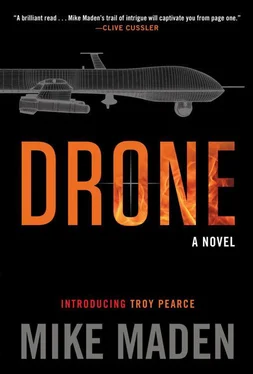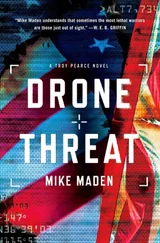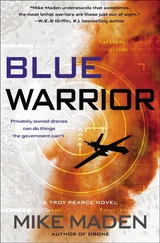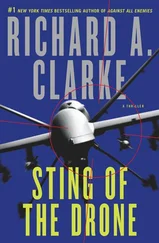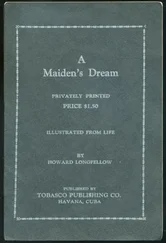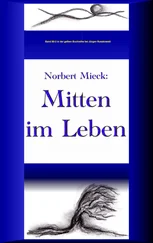It was getting harder and harder to tell the cops from the troops. More and more police brandished assault rifles and flash bangs, wore tactical vests and helmets, and rolled through town in armored vehicles. Civil libertarians wondered if they were local law enforcement or an occupying army.
For over a hundred years, the Posse Comitatus Act and the Insurrection Act had strictly forbidden the use of federal military forces to perform police functions on American soil out of fear that future presidents would be tempted to use them to achieve their political objectives, suppress political opposition, or overthrow the government entirely. Two hundred years of Latin American history had proven those fears fully warranted.
But the twenty-first century posed global threats and challenges to the nation far beyond the scope and resources of the local city cop on the beat who polished his apple and swung a nightstick as a deterrent to local mischief. It was a slippery slope, to be sure, but a necessary one. Police were taking on more and more military-style operations.
The only alternative to the heightened security measures, as extreme as they appeared to be at the moment, was to do nothing and simply hope the violent chaos spree would just go away. Myers knew it wouldn’t, so the extra precautions and higher alerts were initiated. She’d do whatever it would take to guarantee public safety, even if the public didn’t like it.
Malibu, California
Pearce and Johnny Paloma sped along the Pacific Coast Highway in Johnny’s restored ’73 Stingray.
“So this writer guy is in on this mess?” Johnny asked.
Pearce pressed the release button on his Glock, checked to see that the .45 magazine was fully loaded.
“According to Ian, Babak Ghorbani is Ali’s uncle on his mother’s side. That puts him in it up to his neck until I find out otherwise.” Pearce slammed the magazine back into place and racked the slide.
* * *
Ten minutes later, Pearce and Johnny Paloma approached the high-walled beach house under cover of early morning darkness. The distant surf down below hissed softly in the sand as low tide ebbed away.
A former L.A. cop, Johnny easily disabled the civilian security system, then proceeded to the rear entrance while Pearce picked the front door lock. After Johnny had cleared the back slider lock, Pearce gave the signal and they both made their way in.
The house was silent. Pearce and Johnny met up in the living room. Minimalist modern furnishings. Hand-scraped hardwoods. Hell of a view of the Pacific through a big picture window.
They made their way to the master bedroom.
Two people slept beneath a white silk comforter. Pearce yanked it off, grabbed the middle-aged man by his silk pajama top, pulled him onto the floor, and shoved his Glock in the startled face.
“Please! Please! Don’t kill me!” Ghorbani screamed in Farsi.
Johnny snapped the bedroom lights on.
Pearce saw out of the corner of his eye that Johnny had a gun in the face of Ghorbani’s bed partner, also on the floor.
“Where’s Ali Abdi?” Pearce roared in Farsi.
“Who?” Ghorbani asked in English, blinking heavily. “My glasses, I can’t see.”
Pearce saw a pair of rimless glasses on the nightstand.
“Try something stupid, please. I’m begging you,” Pearce snapped.
The middle-aged man’s quavering hand reached up to the nightstand and found the glasses. He pulled them on. He frowned at Pearce in confusion.
“Is this a robbery? Please, take anything.”
Pearce jammed the cold muzzle of the gun barrel against the man’s deeply lined forehead. Ghorbani’s partner whimpered from the other side of the bed.
“I’ll ask one more time. Where’s Ali Abdi? Your nephew?”
“I don’t know.”
CRACK! Pearce whipped the steel barrel of the Glock against the side of the man’s head, knocking his glasses off. Ghorbani howled in pain and clutched at the wound, balling up into a fetal position on the floor.
Pearce kicked the man’s feet apart, then stepped on one of his bare ankles, bearing down with his full weight until the small bones cracked beneath his steel-toed boot.
Ghorbani shrieked with the new jolt of pain, completely forgetting his bleeding head wound, and clutched at his broken ankle. Pearce unsheathed his razor-sharp KA-BAR knife and stuck the tip of the blade into the left nostril of the bearded man’s face.
“Last chance. If you don’t want to whistle like a tea kettle every time you sneeze from now on, you’d better start talking.”
Ghorbani’s mouth opened and closed a few times, trying to form words through his panic and pain. The syllables finally caught in his throat, like a cold engine finally turning over on a winter morning.
“I… I haven’t seen him since I was last in Iran, twenty years ago. He hates me. So does his mother, my sister.”
“And why should I believe that?”
“Because it’s the truth!”
“Hey, chief, come take a look.” Johnny motioned with his pistol at the figure on the floor. Pearce frowned. Crossed over.
The simpering voice cowering by the side of the bed turned out to be a twenty-year-old Iranian boy, pretty and fey in a pink UCLA tank top.
“This your girlfriend, Babak?” Pearce asked.
Ghorbani nodded. “My sister’s family are religious fanatics. Ali swore he would kill me if they ever saw my face again.”
Pearce believed him. Homosexuals had a short life expectancy in the Islamic Republic of Iran these days.
“Does Ali know you’re here?”
“If he did, I’d be dead. Why?”
Pearce holstered his weapon, frustrated. “He might be in the neighborhood. If you do hear anything from him, better call the FBI.”
“Yes, of course.”
Pearce nodded at Johnny. “Let’s go.”
Turlock, California
Brian Heppner was sound asleep on his pricey adjustable air mattress. His alarm was set to go off in twenty more minutes at 4 a.m. for the first milking of the day, but he hadn’t gotten into bed until after midnight. Worse, he’d loaded up on NyQuil because he had a summer cold that he couldn’t shake and the coughing wouldn’t let him fall asleep.
A third-generation dairy farmer, Brian had grown up with the remarkable work ethic—and commensurate sleep deprivation—that went along with owning your own herd. Dairy sales had tanked in the last few years. That meant even more hours and less sleep just to stay out of bankruptcy.
Brian kept a twelve-gauge Mossberg 590 pump shotgun loaded with double-aught buckshot next to his bed because thieves had been breaking into isolated farm homes all over the valley for the last few years and budget cutbacks had kept county sheriff patrols to a minimum. He’d practiced grabbing it out of his sleep a hundred times so he wouldn’t have to think about it when the time came to use it. His wife hated the gun and joked that he slept so deeply that the thieves could steal the bed out from under him and he’d never even know it.
BAM! The bedroom door busted off of its hinges.
A squad of black-clad men stormed in, UMP9s ready, hollering in Spanish. Brian’s wife screamed.
Half awake, Brian lunged for the shotgun.
A machine pistol fired.
Three jacketed rounds ripped into Brian’s rib cage.
Two minutes later, the SWAT lieutenant called for an ambulance with Brian’s blood-spattered wife still screaming in the background.
Washington, D.C.
Donovan took the call. Another fatal shooting, this time in Turlock, California.
Damn it.
Some poor dairy farmer had been killed because somebody called in and said that they heard screaming and what sounded like machine-gun fire.
Читать дальше
